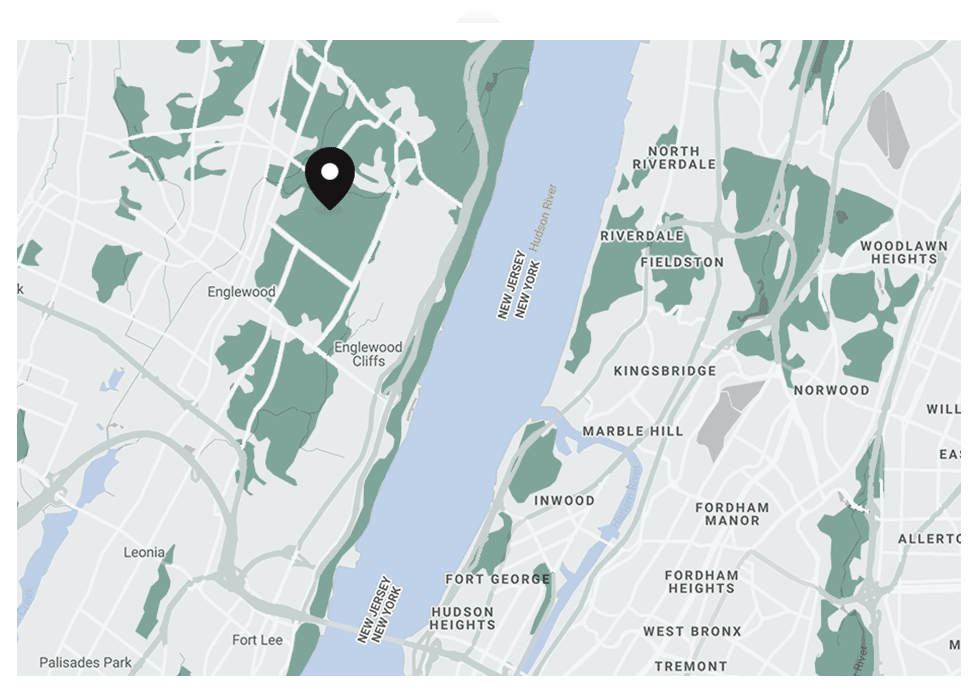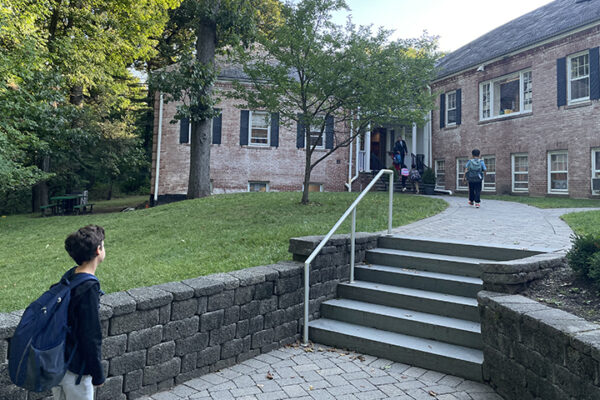In Little School, all teachers have engaged in professional learning that supports research-based literacy instruction. We have also introduced new technology to support this learning. Little School has introduced a weekly computer science class for all students in grades one through four and also oversees programming for kindergarteners in the Little School Computer Science Lab. Our teachers have received training in how to interpret NWEA MAP Assessment data and translate it to individualized student instruction. In addition, Little School students are thrilled to have Morrow House buddies after a two-year hiatus.
Structured Literacy
As reported by The New York Times (and countless other media outlets including EducationWeek and NWEA) recent studies show that “about a third of children in the youngest grades are missing reading benchmarks, up significantly from before the pandemic.” At The Elisabeth Morrow School, we are fortunate to have many resources in place to support and strengthen our students’ literacy skills.
Literacy Training and Technology
All Little School teachers have engaged in professional learning that supports research-based literacy instruction.
Institute for Multi-Sensory Education
Last summer, first-grade teachers Annie Hur and Amy Goodwin attended a weeklong training from the Institute for Multi-Sensory Education (IMSE). Much of IMSE’s approach is rooted in the Orton-Gillingham method. Research has proven that this systematic, explicit, multi-sensory approach is effective for all learners. Teachers learned how to support students in developing phonological skills, word recognition, spelling, writing, fluency, vocabulary, and comprehension. IMSE training also equipped the teachers with new ways to support English language learners.
phonics instruction
All head and associate teachers in first and second grades received training this fall through a phonics instruction program that aligns with the recommendations of the National Reading Panel. As of November, first and second graders are receiving 30 minutes a day of multi-sensory instruction in foundational skills. First-grade teachers are implementing programming — both whole and small-group lessons — with elements of their IMSE training. With two teachers in the classroom, students can receive both whole-class and differentiated small-group instruction each day.
Reading, Gamified
Last fall, all first- and second-grade students were introduced to Lexia Core 5, an online individualized gamified reading software. This highly-engaging, adaptive program learns what students have mastered, rewards them for those skills, and focuses on the mastery of the next set of skills. While one group of students works on Lexia, teachers are able to work with other students for individualized small-group instruction. At an average of 10 to 15 minutes per day, this is a brief but high-impact addition to Little School’s structured literacy program.
Hochman Method
Before the year began, third- and fourth-grade homeroom teachers and Lower School Librarian Mrs. Brandt received training in the Hochman Method to help students construct high-quality sentences, which are the building blocks of good writing. Students receive explicit, step-by-step instruction, beginning with how to transform a sentence stem into a high-quality sentence. As students move from first through fourth grades, they advance from sentences to paragraphs to multi-paragraph compositions. Teachers can adapt this approach to any grade level and embed writing activities in the content of the curriculum in any subject, a practice found to boost learning.
Project-Based Learning
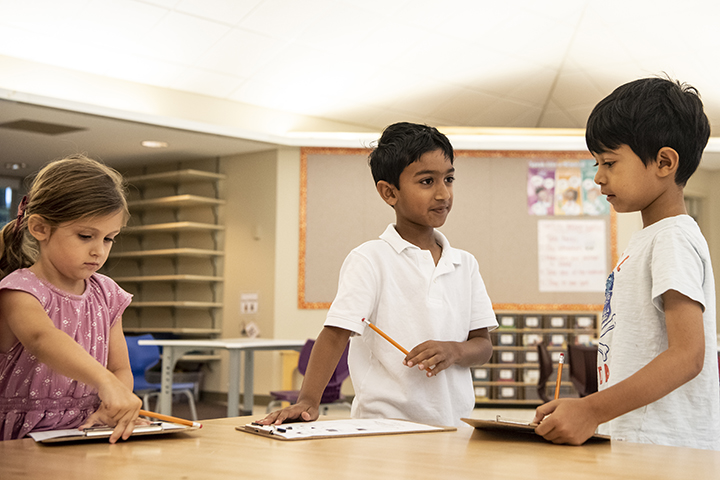
Inquiry Journeys
As a next step in Little School’s project-based learning journey, some homerooms will pilot Inquiry Journeys this spring. During the pilot of Inquiry Journeys, students will work together to find the answers to questions such as “How should we use the natural resources of the United States?” and “How can we act as global citizens?” Inquiry Journeys add a step to the learning process: taking informed action. Once students have identified answers to their big questions, they are empowered to go out and be changemakers in our school community and beyond.
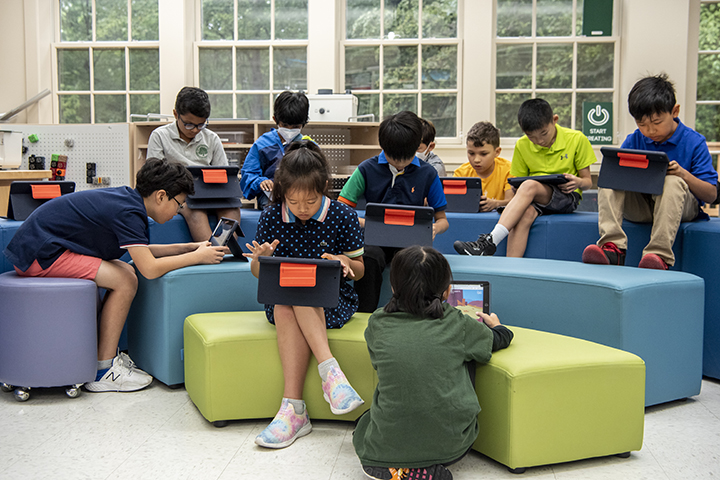
Engineering
Little School recently entered into a partnership with Engineering for Kids, whose mission is to inspire the next generation of engineers by teaching young students to think like engineers. For 10 weeks, all first through fourth graders will learn to design, test, reflect, and reiterate around two themes: aerospace engineering and civil engineering. Designing and testing parachutes in the aerospace unit reinforces students’ learning around concepts such as gravity, atmospheric friction, and weight distribution. The civil engineering unit will teach students to be city planners, with an emphasis on sustainable design.
New and Notable
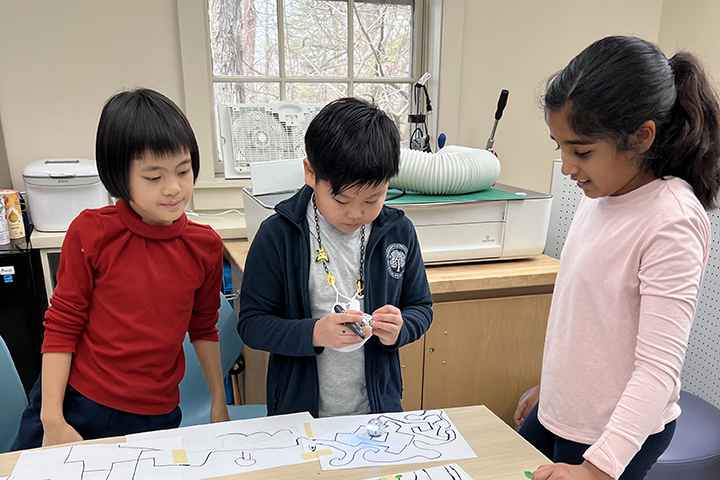
Computer Science
Under the direction of Ms. Hong Su, Little School has added a weekly computer science class for all students in grades one through four. Ms. Hong also works with kindergarteners in the Little School Computer Science Lab, which creates a bridge to the next division for our future first graders. In computer science class, students are learning various methods of coding, and they engage in discussions about the different purposes of coding. During any given computer science class, students may work on coding in a group, individual coding challenges, or programming Ozobots, but they are always engaged in productive struggle. Ms. Su reports many moments of sheer exuberance when students are finally able to complete a challenging task.
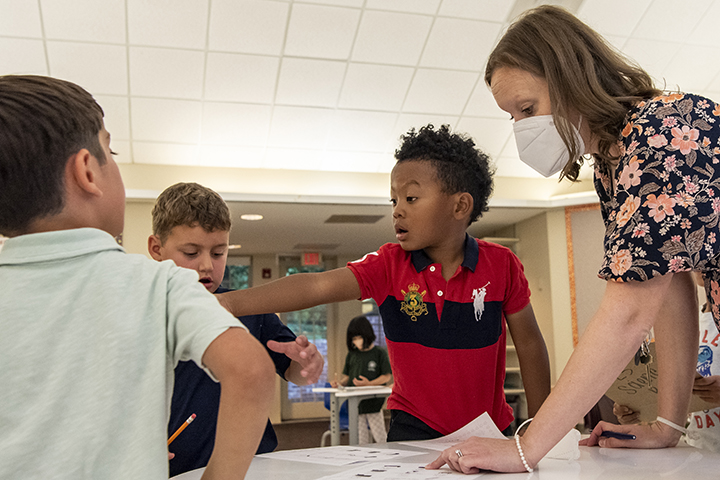
NWEA MAP Assessments
NWEA MAP (Measures of Academic Progress) is an adaptive assessment that provides a comprehensive view of a student’s academic abilities in reading, mathematics, and language usage. One benefit of online adaptive assessments is that they provide a tremendous amount of data. Last year, Little School teachers began to use NWEA MAP assessments to tailor their instruction to meet the needs of each student. This year, under the leadership of MAP Coordinator Kara Makohon-Moore, teachers have received training in how to interpret that data and translate it to individualized student instruction.
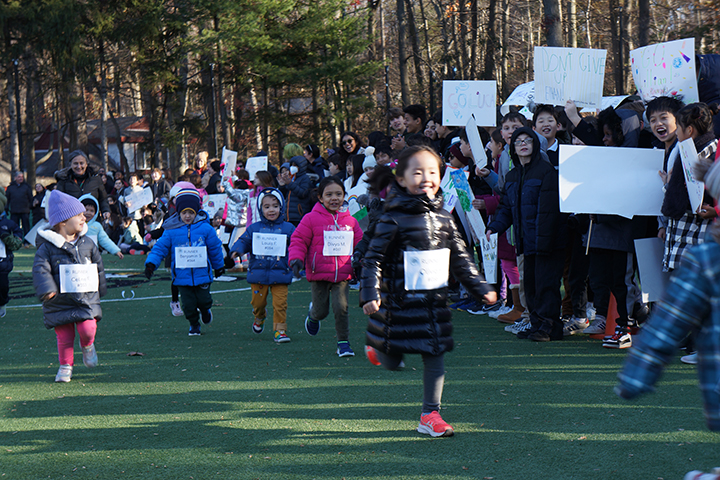
Buddy Program and Service Learning
After a two-year hiatus, Little School students are thrilled to have Morrow House buddies again. The buddies met for Halloween and for the First Annual EMS Fall Fun Run. In March, Little School and Morrow House buddies will join forces to fight food insecurity. Big buddies will teach their younger buddies about this tough topic and then they will pack snack bags in our continued partnership with the Center for Food Action. EMS thanks Scott Ostfeld and EMS Board Trustee Jen Maxfield Ostfeld for their consistent sponsorship of EMS snack pack events to help support the Center for Food Action.
HIGHLIGHTS FROM EMS’ DIVISIONS AND ADMINISTRATIVE DEPARTMENTS
2022–2023 State of the School: Updates from Chilton House, Little School, and Morrow House, as well as Enrollment, Advancement, Auxiliary Programs, Communications & Marketing, Facilities & Operations, Finances, and Community Highlights
